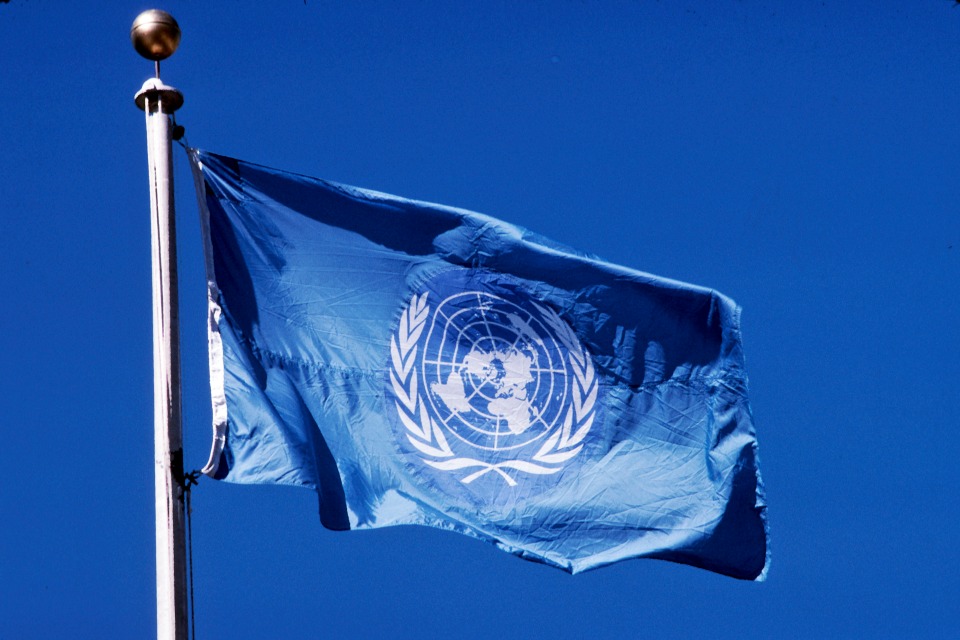'We must not overlook the importance of justice, accountability and the protection of human rights'
Statement by UK Ambassador Lyall Grant at the UN Security Council Open Debate on Rule of Law in Conflict-Affected Countries

Thank you Mr President,
Thank you for organising and presiding over this important debate. I’d like to thank the Secretary-General for his briefing and the Deputy-Secretary-General for his presence today and his personal leadership on this issue.We strongly support the draft Presidential Statement proposed by Lithuania and call on all Member States to do likewise.
Mr President,
As we seek to prevent conflict, halt violence and build lasting peace around the world, we must not overlook the importance of justice, accountability and the protection of human rights. Strengthening rule of law should be a core priority for this Council. Equally, the United Nations should be at the forefront of international efforts to support countries emerging from conflict to improve their rule of law systems.
History has taught us that you cannot have lasting peace without justice, accountability and reconciliation. Popular uprisings around the world demonstrate that nations cannot maintain lasting peace and prosperity whilst denying their citizens basic rights and justice.
Effective, accountable and accessible security and justice institutions protect individual rights and prevent violent conflict. Council-mandated missions – working in coordination with other parts of the UN system – are critical to strengthening national rule of law systems. For this reason, the United Kingdom supports the Secretary-General’s efforts to strengthen the UN’s institutional arrangements, in particular provisions to empower field leaders and UN joint working through the global focal point for police, justice and corrections. We hope that these steps will make a positive contribution to the quality of support delivered to conflict-affected countries. We urge the Secretary-General to continue to improve the Organization’s ability to measure and evaluate the effectiveness of its support. We know this is challenging. But the UN must show evidence of the difference it is making on the ground in countries recovering from conflict because without such evidence, it risks losing credibility in the eyes of those it is trying to help.
The United Kingdom is also playing its own part to strengthen national rule of law systems in conflict-affected countries. This year we will be the only G20 country to spend 0.7% of our gross national income on overseas aid and at least 30% of that will be spent in conflict-related countries. We have committed $84 million per year to help improve security and justice in 16 different countries such as the DRC and Sierra Leone. This will support a range of activities including facilitating access to security and justice for 10 million women around the world.
Mr President,
Twenty years ago, impunity for war crimes was the norm. We have worked hard to break that norm. While there is more work to do, in recent decades we have entered a new age of accountability.
We have built the architecture of international justice so that individuals responsible for appalling crimes have been and are being prosecuted. And there have been significant advances in international law, such as defining gender crimes and establishing that genocide can be committed through rape and sexual violence. Efforts by some Member States to reverse these gains are reprehensible and must be resisted.
Mr President,
There must be no impunity for the most serious crimes. The perpetrators of crimes such as genocide, war crimes and crimes against humanity must be held accountable.
The message of the last two decades is clear: If you commit heinous crimes, you will not rest easily. International justice is patient, and its reach is long. There is no expiry date for these crimes. You will be prosecuted.
The United Kingdom reiterates its call for States to fully meet their obligations relating to the International Criminal Court: both those obligations that fall to States Parties to the Rome Statute, and those that follow from the decisions of this Council. We will continue to use our voice in this Council to encourage effective follow up of Council decisions with respect to the ICC.
We thank the United Nations for its important contributions in the fight against impunity. In particular, we welcome the Secretary-General’s issuance of the latest guidance on contacts with ICC indictees.
Mr President,
The United Kingdom is proud of our role in strengthening the international rule of law. We are engaged in all six existing international criminal tribunals. We are the only Permanent Member to accept the compulsory jurisdiction of the ICJ. We are one of only two Permanent Members of the United Nations Security Council to have ratified the Rome Statute. And we are steadfast supporters of the International Criminal Court.
Mr President,
We must all use the Council’s authority to fight impunity and help countries recovering from conflict to re-build their rule of law systems so that people everywhere are safe and have access to the justice so rightly deserve.
I thank you.